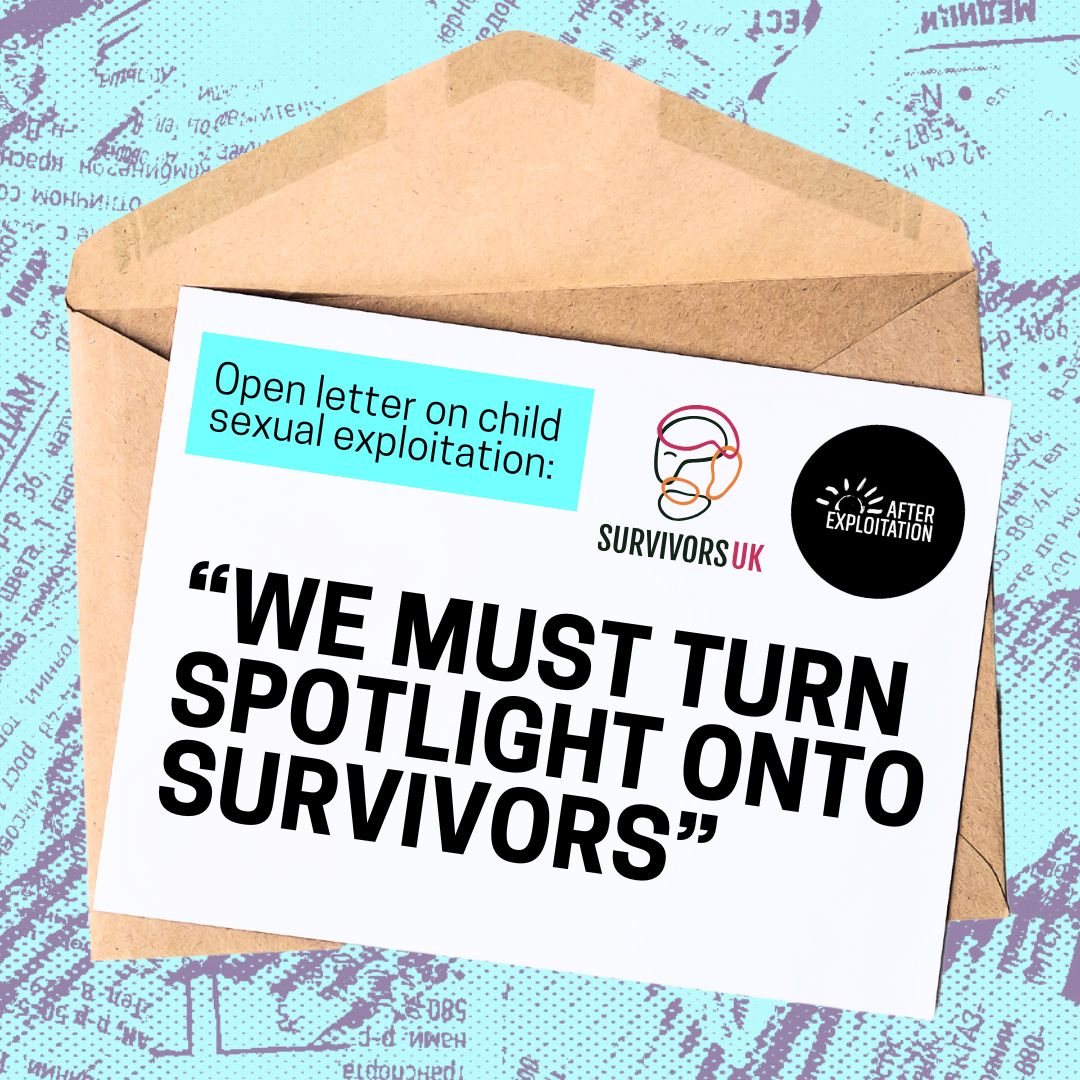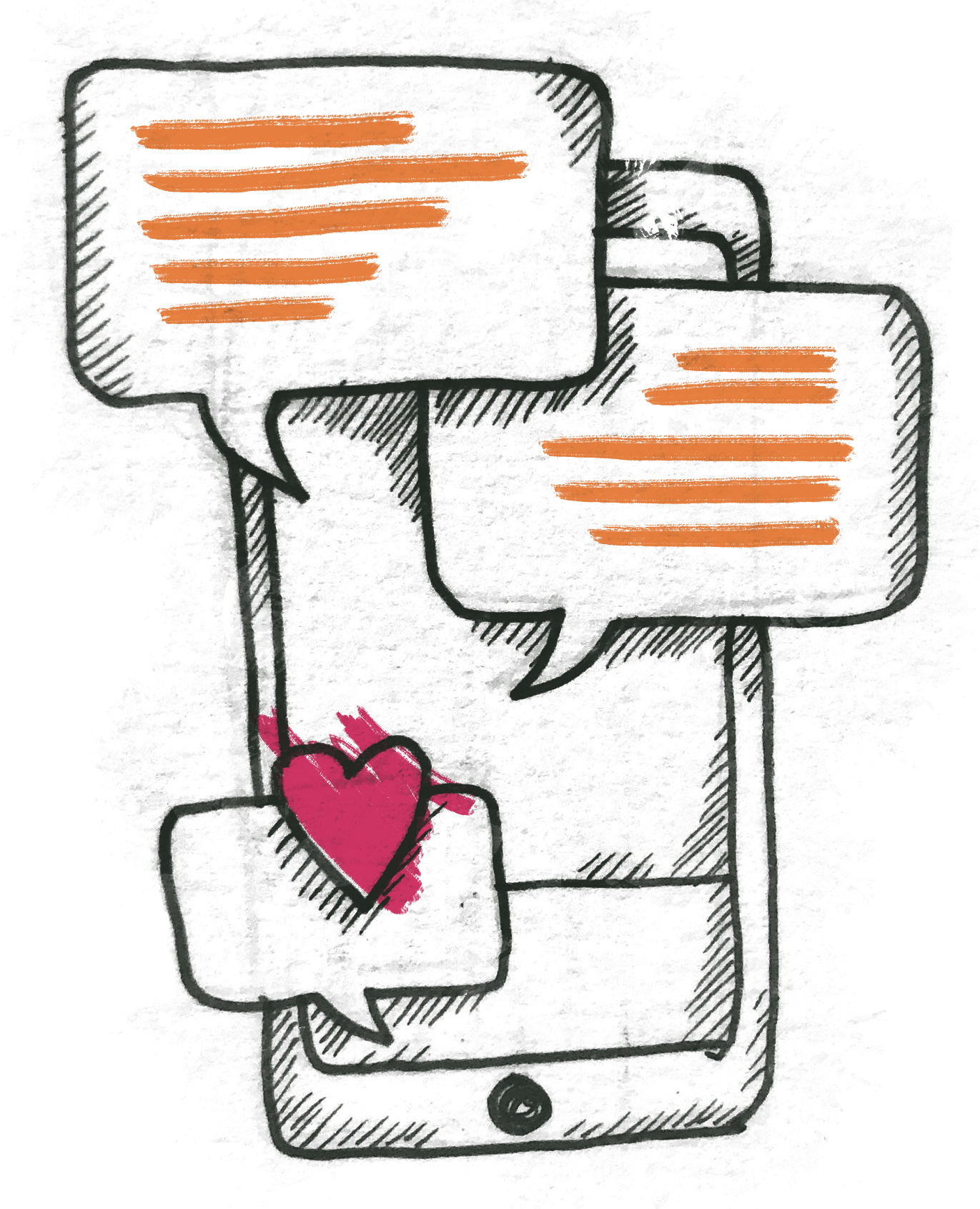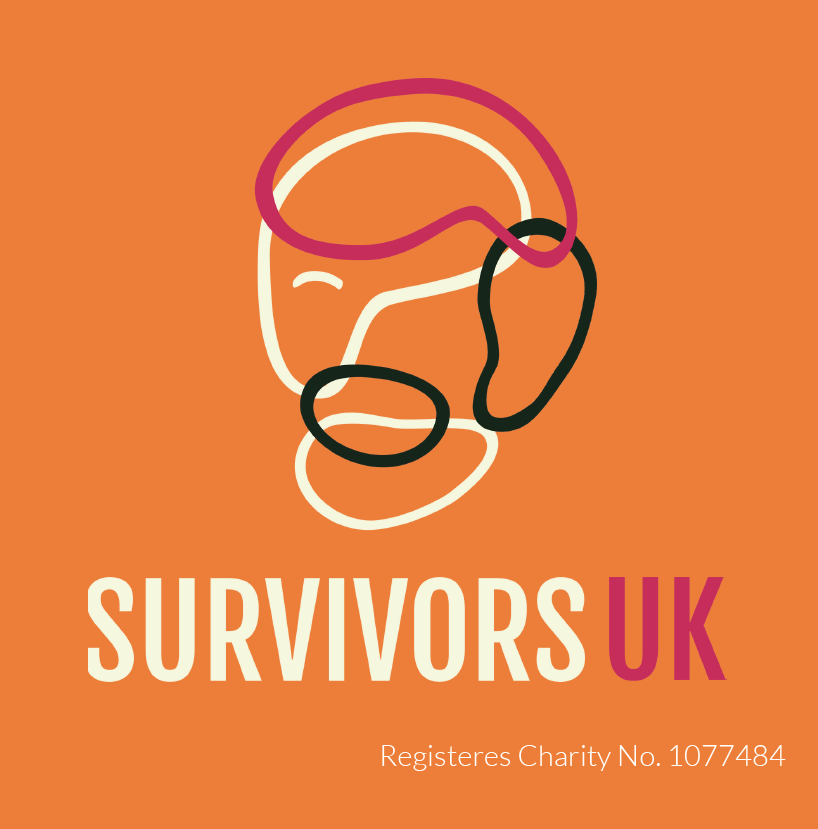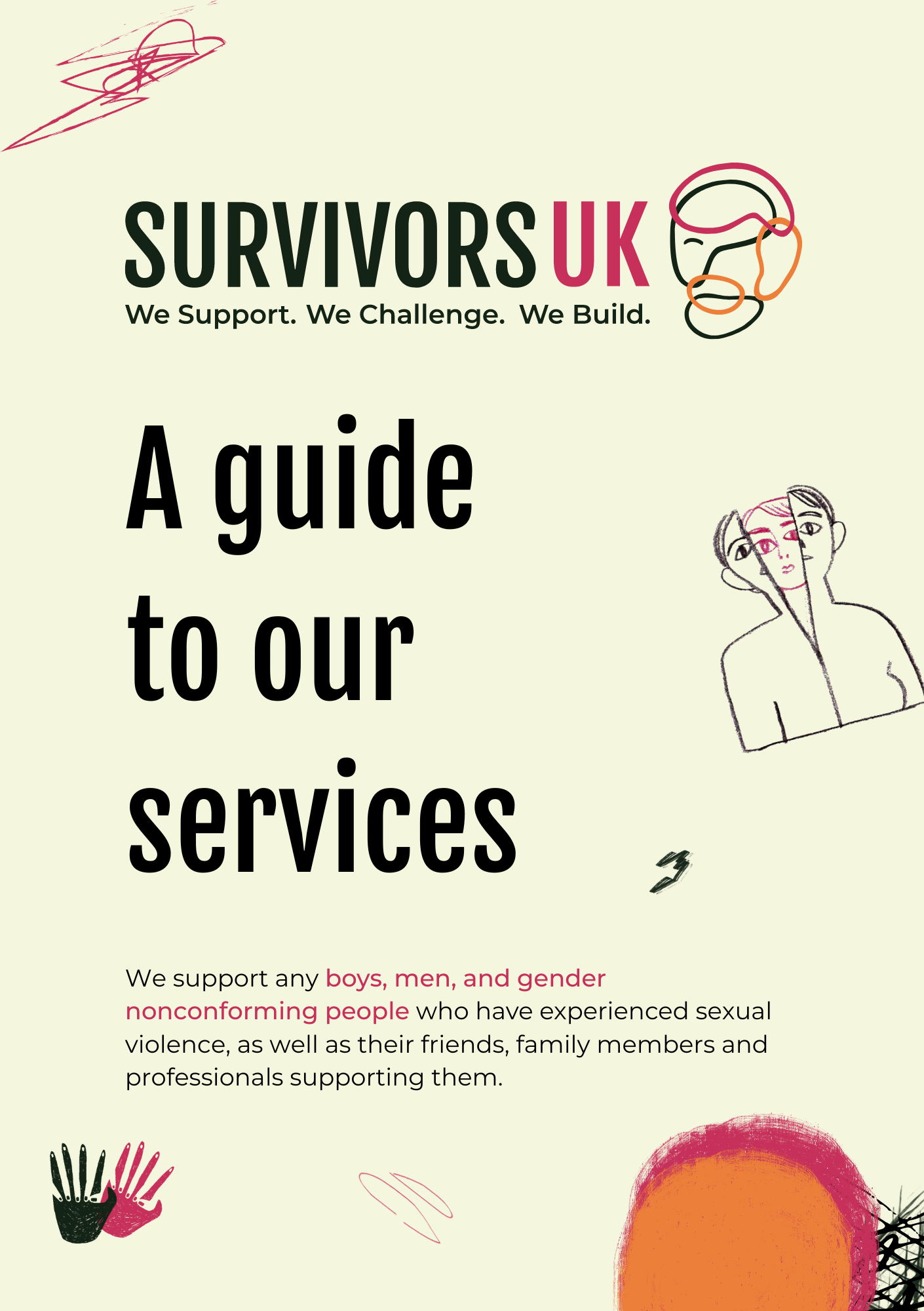
Joint letter: “We must shift focus to victims and survivors of child sexual exploitation”
16th January 2025
Amidst divisive narratives on child sexual exploitation in the UK, nearly 70 experts in exploitation, child safeguarding and human rights are calling for an urgent shift away from sensationalism and towards survivor support.
SurvivorsUK have signed this joint open letter, drafted by After Exploitation, alongside other survivors, academics, experts and charities advocating for victims. The open letter below has been shared from After Exploitation’s website with permission.
—-
As organisations, law firms, experts by experience, and academics with a focus on exploitation, we call for those in the public eye to help us move the national conversation and action towards the needs of victims and survivors of child sexual exploitation.
Child sexual exploitation is recognised as a form of modern slavery and child abuse. Yet, child protection and children’s services have been cut back,[1] whilst a number of support systems for victims of exploitation have been dismantled through laws restricting access to help.[2] If we do one thing, it must be to identify children at risk and win the trust of victims scared to come forward. Yet, the UK is currently failing. Child victims and survivors (including survivors of non-recent childhood exploitation) now face higher evidence thresholds, before they can be recognised or receive support, compared to two years ago.[3] To make matters worse, stealth changes to definitions of sexual exploitation now make it even harder for victims of non-recent sexual exploitation to be supported or considered as victims.[4]
We must urgently grapple with the needs facing survivors of modern slavery, including child sexual exploitation. In practice, today, many victims of all ethnicities and nationalities are routinely denied access to support such as safe housing and counselling due to a lack of legally guaranteed help for victims and survivors. If the government does one thing, it should ensure that the legal entitlements of survivors of modern slavery – including child sexual exploitation – exist not only on paper but in practice too.
Lastly, we must reiterate that both survivors and perpetrators of modern slavery can be from any nationality, gender, age or background. Portraying sexual violence as a crime unique to one group of people not only causes harm in those communities, but hinders the ability of professionals to identify and understand the many ways exploitation cases may present. Many victims of child sexual exploitation are white British, but many are not.[5] Similarly, offences with multiple perpetrators, some of which are described as grooming gangs, are not the only ways in which children are sexually exploited. Many are targeted by members of their own family or trusted friends. These cases are worthy of recognition too. It is vital that a hierarchy of victims does not develop, and that every survivor of sexual exploitation and modern slavery is included in government plans to tackle this form of abuse.
We implore political actors to refrain from weaponising the experiences of victims and survivors, and instead keep their focus on the most urgent challenges facing all survivors of child sexual abuse and exploitation at this time.
After Exploitation,
African Rainbow Family,
AFRUCA Safeguarding,
Anti-Slavery International,
Ashiana Network,
Black Country Women’s Aid,
Bail for Immigration Detainees (BID),
Black Box Research and Consultancy,
Causeway,
Duncan Lewis Public Law,
Ella’sEvery Child Protected Against Trafficking (ECPAT),
Focus on Labour Exploitation (FLEX),
Freedom United,
Good Law Project,
Hibiscus,
Hope at Home,
Hope for Justice,
HOPE not hate,
House of Rainbow,
Humanities Research Consultancy,
International Justice Mission,
Latin American Women’s Rights Service,
Law Centres Network,
Leigh Day,
Kalayaan,
Migrants at Work,
Migrant Help,
Migrant Rights Network,
The Salvation Army,
Secrets Worth Sharing,
Shiva Foundation,
Snowdrop Project,
Social Workers Without Borders (SWWB),
Shpresa Programme,
Stop and Prevent Adolescent Criminal Exploitation (SPACE),
Strongtower Foundation,
Sue Lambert Trust,
Survive,
Survivor Alliance UK,
The Survivors Trust,
Survivors’ Network,
SurvivorsUK,
Tulia,
UK BME Anti-Slavery Network (BASNET),
We Are Survivors,
Work Rights Centre,
The Voice of Domestic Workers (VODW)
In addition, this statement is signed by 24 academic experts and experts by experience, spanning across 17 universities in the UK and globally.
[1] The Well-Worn Parth (2023), The Children’s Society. https://www.childrenssociety.org.uk/information/professionals/resources/the-well-worn-path#facts-about-childrens-services-funding
[2] The Nationality and Borders Act 2022 raised the evidence threshold for survivors to be recognised officially as ‘victims’, by expecting them to meet new evidence burdens. In practice, this has left a greater number of survivors slipping through the net and not able to access ring-fenced support for victims of exploitation, such as counselling or safe housing.https://www.biicl.org/publications/assessing-the-modern-slavery-impacts-of-the-nationality-and-borders-act-one-year-on
[3] The National Referral Mechanism (NRM) is the mechanism through which survivors of exploitation are recognised as potential and confirmed victims by the Home Office. This is the route through which victims of exploitation, including child sexual exploitation, are able to access ring-fenced support. Under the Nationality and Borders Act 2000, changes to statutory guidance on modern slavery asks decision makers to expect greater levels of evidence from survivors and the first responder responsible for referring in the case. https://www.antislavery.org/wp-content/uploads/2024/06/NABA_report_ATMG_FINAL.pdf (pg 12)
[4] Statutory modern slavery guidance (pp 23) was updated during the pre-election period in 2024 to deem sexual exploitation ‘more or less’ likely on the basis of many new factors, including: Frequency of offence, offender history, number of offenders involved, grooming. Genuine victims are likely to be impacted by this restrictive decision-making.
[5] 43% of recorded child victims of sexual exploitation in the UK are non-UK nationals. Analysis by After Exploitation using the UK Data Service (UKDS). Data extracted 8th January 2025. National Referral Mechanism and Duty to Notify Statistics, 2014-2024






